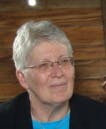Recognizing women as agents of change
Jan 21, 2015
Story
Some excellent signs of progress in changing how international development/aid agencies think of women, show up in this story from IRIN News, the humanitarian news agency - http://www.irinnews.org/report.aspx?ReportID=99847
1) “Women are key to food security because their influence on the household livelihood is huge,” explained Mona Chaya, the Food and Agricultural Organization (FAO)’s deputy strategic objective coordinator for resilience. Six out of 10 farmers in Asia are women; yet “aid policies have long neglected women as food producers,” noted UN Messenger of Peace Princess Haya Bint Al Hussein. Giving an example of a FAO-backed project in Chad, where women had been given resources to improve agricultural yield, Chaya insisted: “Gender is not a standalone issue. Rather it is an integral part of development work... It’s a tool for agricultural development and food and nutrition security in peace as well as in disasters.”
2) The humanitarian aid arm of the European Commission, ECHO, has recently adopted a new three-pillar policy on gender in humanitarian interventions, which includes mainstreaming gender awareness into all programming, targeted actions for women and capacity-building. In practical terms, this includes everything from planning how to install lighting in refugee camps to cash transfers specifically targeted at women, as well as ways to build capacity among partners on gender issues and among women, so that they can better help themselves.
3) The International Organization for Migration has trained women in rural areas so that they can then create local disaster risk reduction mechanisms tailored to their own communities.
4) The UK Department for International Development is also introducing a requirement that all its development and humanitarian interventions - from drafting through to evaluation and monitoring - consider gender equality.
5) The Inter-Agency Standing Committee (IASC) Gender Marker, first piloted in 2009, is a tool that codes on a scale whether or not a humanitarian project is designed well enough to ensure both genders benefit equally from it.




